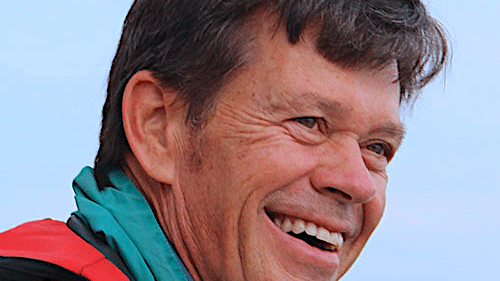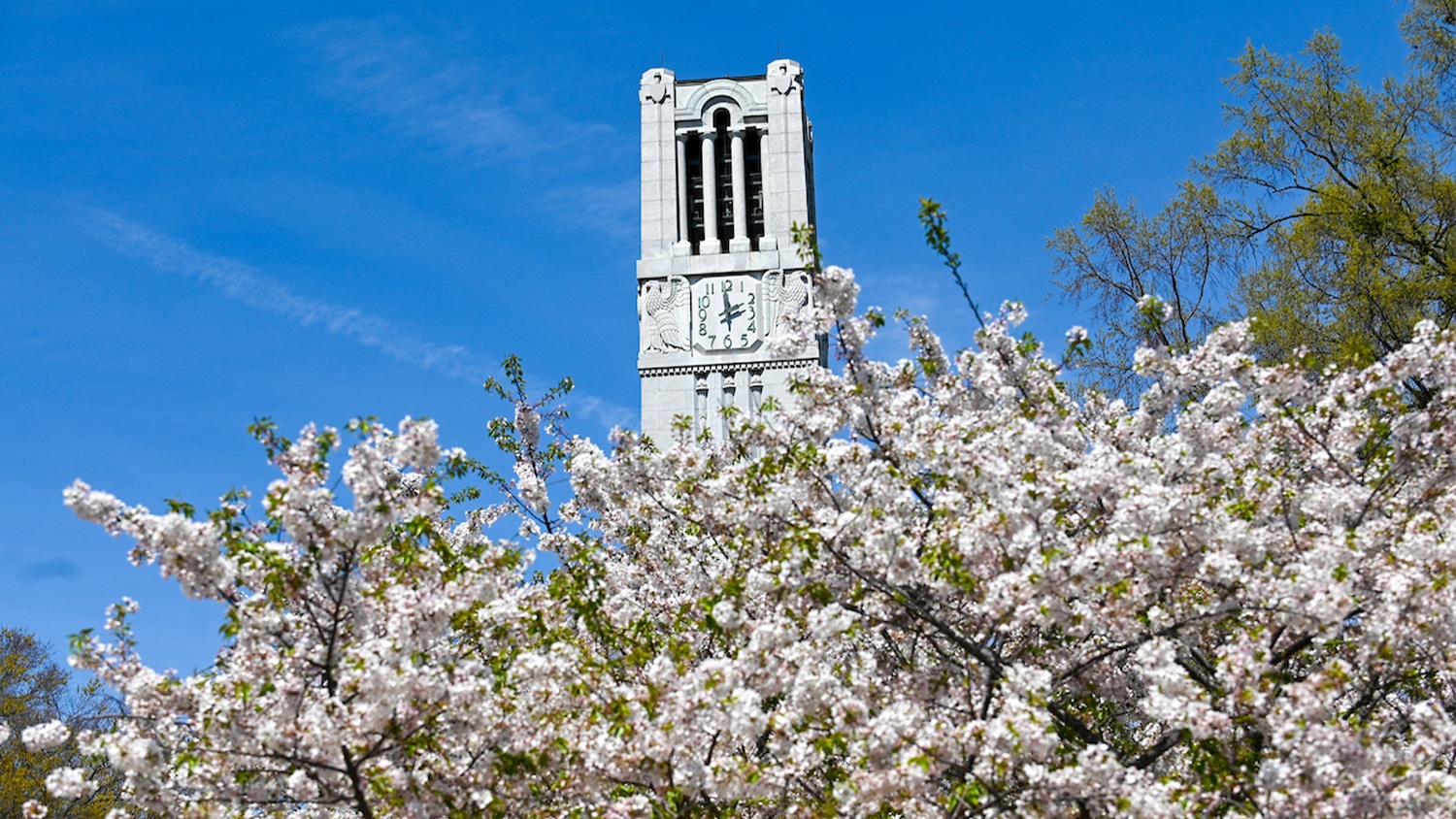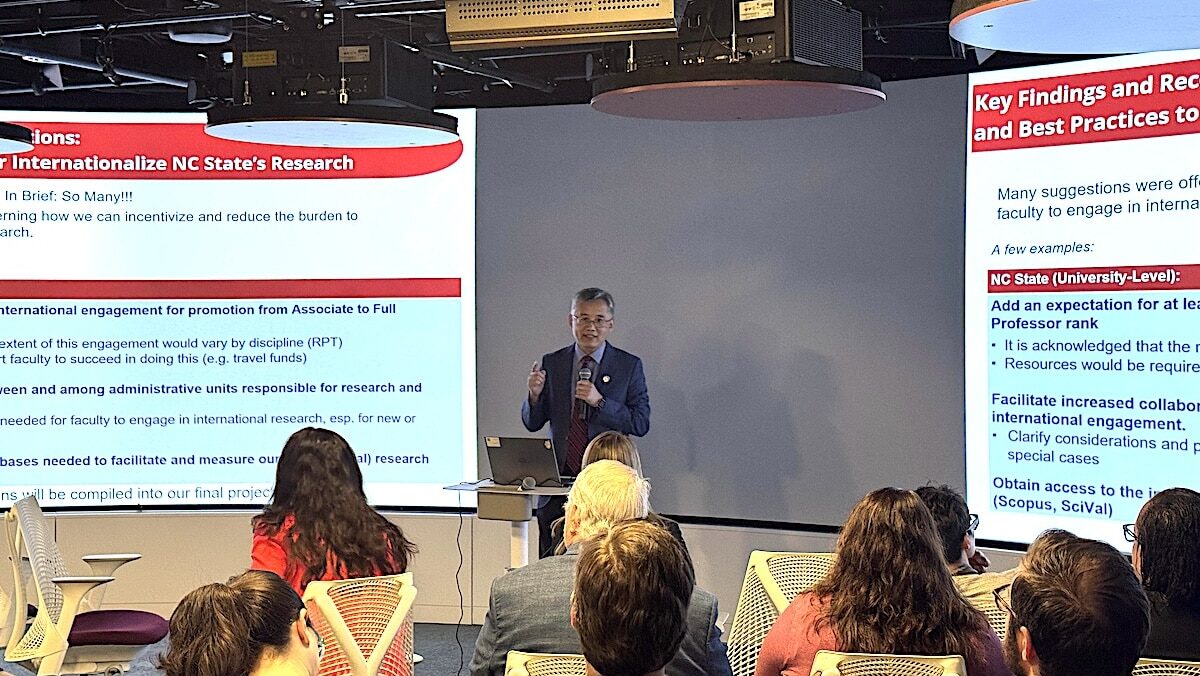Dean of Startups
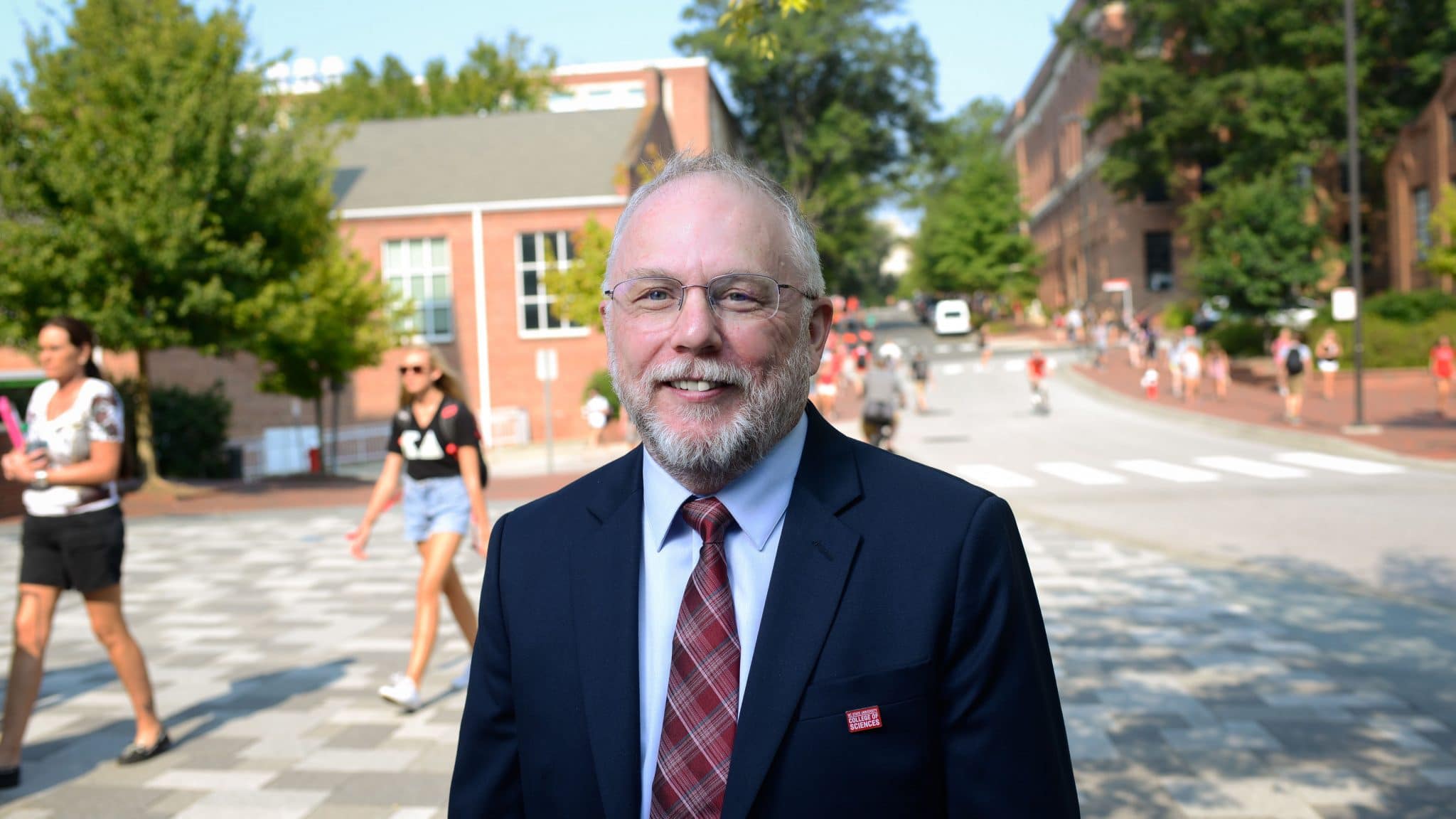
Bill Ditto thrives in chaos.
His proficiency goes beyond the language of chaos theory, in which he is one of the world’s most prominent researchers. Ditto has built a career transforming new organizations — with all their messy challenges and appetizing opportunities — from promising startups to deep-rooted institutions. Bringing order out of complexity has been a central theme of his research, but it’s also been the hallmark of his administrative career.
In September, Ditto joined the College of Sciences as its new dean, serving as the chief administrator for a two-year-old organization with nearly 4,000 students; 620 faculty, staff and postdoctoral researchers; and $50 million in research expenditures. His goals: capitalize on the College’s strong start and build a culture that makes studying and working there the experience of a lifetime.
“Our greatest opportunity is our willingness to combine the best from our past with the best moving forward,” he said. “The challenge is making sure you keep those values every day.”
Ditto’s background makes him well-suited to this task. He came to NC State from the College of Natural Sciences at Hawaii’s flagship public university, the University of Hawaii at Manoa. As dean, he transformed the struggling college into a research dynamo with soaring student enrollments and dozens of new faculty. At other prominent universities, he’s founded and led schools and departments. And he’s started two companies based on his groundbreaking work in chaotic systems.
Since arriving on campus, Ditto has immersed himself in the College, meeting with faculty and staff, talking to students and introducing himself to alumni. He smiles easily, talks excitedly and brings an infectious energy to conversations ranging from nonlinear systems to NC State football.
Ditto’s leadership style values trust and respectfulness; he doesn’t want to force his way of doing things on others. Instead, he wants to create a fun and exciting environment that values excellence in teaching and research. At a college with such a strong foundation and a deep alumni base, he said, building a strong culture can help it take the next step toward global prominence.
“I think this is the best place in the country to change the world,” he said.
He’s Been Everywhere, Man
William L. Ditto was born in Alaska in 1959. His mother and father had moved there from Texas a few years earlier to start a telephone company in the Anchorage area.
Ditto’s mother traveled around the city selling Yellow Pages ads, and the little boy went with her — an early introduction to the business world. Tragedy nearly struck the family on March 27, 1964, when the Great Alaska Earthquake decimated Anchorage and the surrounding region. Earlier that day, Ditto’s mother and oldest brother had gone into town to buy ski equipment at JCPenney. But they hadn’t found what they were looking for and were across the street when the quake struck. The Penney’s building collapsed, but they survived.
Shortly after the earthquake, the family moved back to Texas, where Ditto’s father continued his work as a telecommunications engineer.
His son, meanwhile, became fascinated with the Fantastic Four comic books. The leader of the group, Mister Fantastic, could stretch into any form but was also an expert in physics, mathematics and engineering. His problem-solving abilities drove many of the plotlines and fueled Ditto’s interest in science, particularly physics.
“It always drove me crazy not knowing how things worked,” he said.
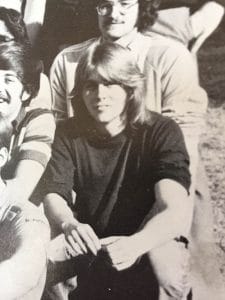
Ditto sped through high school, graduating at age 16 and enrolling at UCLA the following fall. He was putting himself through college, so he went to work for his older brother, who managed a music studio in Hollywood. A high point: watching Fleetwood Mac rehearse for its Rumours tour. A not-so-high point: lurching a giant manual-transmission truck down Hollywood Boulevard, trying not to damage a piano that Joan Baez was to play. The teenage Ditto had never driven a stick before.
“I don’t know if she ended up using it, or if it was even usable,” he recalled. “But after that, I knew how to drive a stick.”
Ditto graduated in 1980 and entered the graduate physics program at Clemson University. There, he dug deep into fields that led to his research career.
At first glance, a system based on chaos doesn’t appear to follow any scientific laws. Take weather patterns. Meteorologists know much about how weather works, but with so many colliding variables the system is just too disorganized to be fully understood. So forecasts are often wrong. Chaos reigns.
But these systems aren’t totally random. Sure, they are long-term unpredictable, but there is a way to control them. We know this because of Bill Ditto.
After graduating with his Ph.D. from Clemson in 1988, Ditto took a job with the U.S. Naval Surface Warfare Center. He began an experiment that ultimately harnessed the chaotic properties of a smart material that looked a lot like holiday tinsel. Ditto and his group proved they could tune it to certain frequencies and control its movement. A decade later, the work would become the basis for another of his inventions: chaos-based computing.
Later, at the College of Wooster in Ohio, Ditto became the first researcher to control chaos in the heart when he used electrical stimulation to bring cardiac rhythms under control. The work, which was featured in Science and later in Time, formed the basis for a company founded by Ditto and influenced pacemaker development.
An Entrepreneur in Academia
Ditto eventually moved on to Georgia Tech, where he rose from assistant professor to full professor in just five years. His research hit another high point when his lab became the first to control chaos in the brain by harnessing the system that can lead to epilepsy. The work remains an indispensable source for brain researchers.
While at Georgia Tech, he got an opportunity that changed his career. The university was starting a new Department of Biomedical Engineering, and Ditto was recruited as one of the founding faculty.
“It got me interested in how universities work and how you start new things,” he said. “Imagine: How do you start a department? I learned how to do it, and I wanted to do it on my own.”
The opportunities kept coming. The University of Florida was starting a biomedical engineering department: Did he want to be the founding chair? Ditto said yes.
At first, it was just Ditto and three staff. But over seven years, Ditto helped the department land a $94 million building and secure a $20 million unrestricted endowment. The endowment made biomedical engineering the first named department in the university’s history.
While at Florida, he co-founded Chaologix, which developed the first computer chip based on chaos theory. The company has since received $8.5 million in investor funding and recently introduced a new technology that boosts semiconductor chip security for applications ranging from smart cards to smartphones.
In 2009, Arizona State University recruited Ditto to head up its new School of Biological and Health Systems Engineering. He participated in landing a Nobel Laureate — a first for that faculty — and grew the school’s enrollment.
Three years later, the College of Natural Sciences at the University of Hawaii at Manoa was looking for a new dean. The institution was struggling with enrollment and funding, but Ditto turned it around. During his four years at Hawaii, the college added more than 30 tenured and tenure-track faculty. Research productivity skyrocketed, with research awards jumping more than 65 percent in two consecutive years. Several new graduate and undergraduate programs were added.
There was a lot to like about the job. Ditto and his partner, Kathi Russell, enjoyed the weather and the people, but they missed the mainland. In the College of Sciences at NC State, Ditto saw a chance to apply his startup academic experience at a new college in the science-rich Triangle area.
“This is an institution where I think I can contribute for many years to come,” Ditto said. “And I think I have the skill set to do that.”
The Vision for Sciences
When Ditto joined NC State on Sept. 1, the College already enjoyed considerable momentum under the leadership of Dan Solomon, the inaugural dean who retired earlier that summer. Another strong freshman class had arrived on campus, recent research activity featured several large grants, and fundraising numbers were up.
Ditto sees opportunities to capitalize on these successes and harness the university’s overall trajectory. NC State has gained 22 places in U.S. News & World Report‘s Best Colleges rankings since 2010.
But he also recognizes the challenges. Just two-and-a-half years ago, the College didn’t exist, and since then thousands of faculty, staff and students have been moved to a new, and larger, organization. That includes the new Department of Biological Sciences, which brought together programs in biology, genetics, microbiology and toxicology that were formerly separate academic departments in another college.
Another challenge is space. The College has operations in more than 20 buildings across campus, and in some cases faculty could be working in closer proximity to others in their research areas. Building out the Science and Innovation Corridor — which runs from SAS Hall to David Clark Labs and will eventually include a signature science building on the site of Harrelson Hall, which is slated for demolition — is among his priorities.
“I’m not seeing things I haven’t seen before, other than a whole lot of potential,” he said. “I can tell folks what the end point is and where the tough parts are.”
Ditto wants Sciences to be a place where top faculty and students aspire to be. Working and studying here, he said, should be transformative experiences that make the world a more prosperous and enjoyable place.
“Invest in people and trust and community and transparency,” Ditto said. “It always works.”
About Bill Ditto
State of Birth: Alaska
Previous Job: Dean, College of Natural Sciences, University of Hawaii at Manoa
Areas of Expertise: Chaotic and Nonlinear Systems, Epilepsy, Cardiology, Reconfigurable Computing, Astrophysics
Publications: More than 200
Patents: More than 20
Companies Founded: 2
Most Unusual Job Task: Driving Joan Baez’s piano down Hollywood Boulevard (see story)
- Categories:
